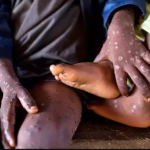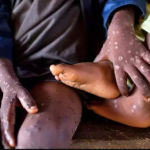Hamas announced on Friday that it rejected “new conditions” included in a Gaza ceasefire proposal presented by US-led mediators during two days of talks in Qatar. Diplomatic efforts have yet to ease the suffering caused by over 10 months of conflict.
However, US President Joe Biden emphasized that “we are closer than we have ever been” to reaching a resolution following the latest round of discussions. Biden is dispatching US Secretary of State Antony Blinken to Israel this weekend to advance the proposal, according to the State Department.
Mediators from Egypt, Qatar, and the US have been working to finalize the framework initially outlined by Biden in May, which he noted was proposed by Israel.
In a joint statement, the mediators stated they had presented a proposal that “bridges remaining gaps” and that efforts would continue in the coming days to finalize specifics related to humanitarian provisions and a potential hostage-prisoners exchange. Further talks aimed at securing a rapid agreement are scheduled to resume in Cairo “before the end of next week.”
Hamas, which did not participate in the Doha discussions, quickly expressed its opposition to what it described as “new conditions” from Israel in the latest plan. Israeli Prime Minister Benjamin Netanyahu urged mediators to “pressure” Hamas to accept Biden’s framework.
The urgency to reach a Gaza ceasefire has intensified due to threats from Iran and its proxies to attack Israel, with mediators striving to prevent a broader regional conflict. Biden warned, “No one in the region should take actions to undermine this process,” and expressed optimism, saying, “There’s just a couple more issues, I think we’ve got a shot.”
Cataclysmic’ Consequences:
A source familiar with the situation informed AFP that Hamas rejected conditions involving the presence of Israeli troops on Gaza’s border with Egypt and the terms for the release of Palestinian prisoners in exchange for Israeli hostages.
Meanwhile, Jordan, a Western ally, placed the blame on Israeli Prime Minister Benjamin Netanyahu for obstructing the deal. Jordan’s Foreign Minister Ayman Safadi called for pressure “by everyone who wishes to see this through to completion.”
On Friday, British Foreign Secretary David Lammy and his French counterpart Stéphane Séjourné held discussions in Israel to push for the agreement. During the talks, Israeli Foreign Minister Israel Katz told his visiting counterparts that he expects international support if Iran retaliates for the assassination of Hamas leader Ismail Haniyeh in Tehran.
Séjourné responded that it would be “inappropriate” to discuss responses to any potential attack while diplomatic efforts to prevent it are ongoing.
A senior US official, speaking anonymously to reporters, warned that Iran would face “cataclysmic” consequences if it attacked Israel.
The situation in the West Bank escalated on Thursday night with a deadly attack by Israeli settlers, drawing international condemnation and calls for sanctions, including against government ministers, due to the rise in settler violence against Palestinians since the start of the Gaza war.
The Israeli military reported that “dozens of Israeli civilians, some of them masked,” entered the village of Jit, where they “set fire to vehicles and structures in the area, hurled rocks and Molotov cocktails.” A Palestinian man was fatally shot.
The Palestinian foreign ministry, based in the West Bank, condemned the attack as “organized state terrorism.” The European Union’s top diplomat, Josep Borrell, announced plans to propose sanctions against Israeli government “enablers” of settler violence.
In response, Israeli far-right Finance Minister Bezalel Smotrich, a strong advocate for West Bank settlements, joined other Israeli leaders in denouncing the attack, labeling the perpetrators as “criminals.”
First Polio Case Recorded:
Hamas’s unprecedented attack on Israel on October 7, which triggered the ongoing war, resulted in the deaths of 1,198 people, mostly civilians, according to an AFP tally based on Israeli official figures. During the attack, militants also captured 251 hostages, with 111 still held in Gaza, including 39 who the military believes are deceased. Over 100 hostages were released during a one-week truce in November.
On Thursday, the death toll from Israel’s retaliatory military campaign surpassed 40,000, according to Gaza’s health ministry, which is controlled by Hamas.
The ministry has not provided a breakdown distinguishing between civilian and militant casualties. The war has severely damaged Gaza’s healthcare system, leading to repeated warnings from the World Health Organization about the growing risk of preventable diseases.
On Friday, the Palestinian health ministry reported that a 10-month-old unvaccinated child in Gaza had been diagnosed with polio, marking the territory’s first case in 25 years, as confirmed by the WHO.
This announcement came just hours after UN Secretary-General António Guterres called for two seven-day pauses in the Gaza conflict to vaccinate over 640,000 children against type 2 poliovirus, which was first detected in the territory’s wastewater in June.
As ceasefire talks continued, thousands of civilians were once again on the move within Gaza after the Israeli military issued new evacuation orders in preparation for imminent military actions. The UN estimates that these orders affect over 170,000 people, forcing them to crowd into the ever-shrinking remnants of an area designated as a humanitarian safe zone.
According to the UN, the area where people have been instructed to relocate now makes up just 11 percent of Gaza.
“During each round of negotiations, they exert pressure by forcing evacuations and committing massacres,” said Issa Murad, a Palestinian displaced to Deir al-Balah, speaking about the Israeli forces.



